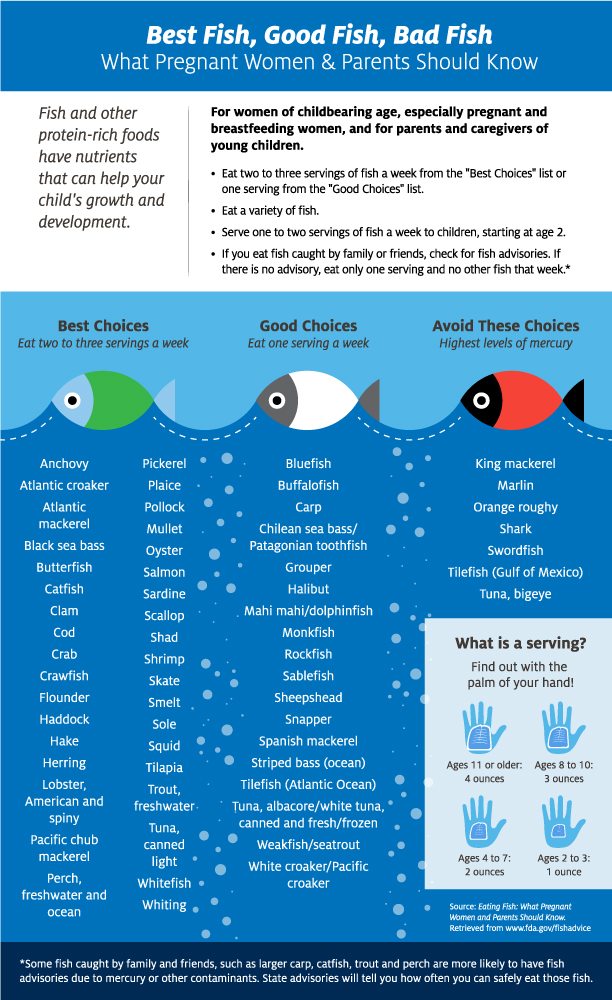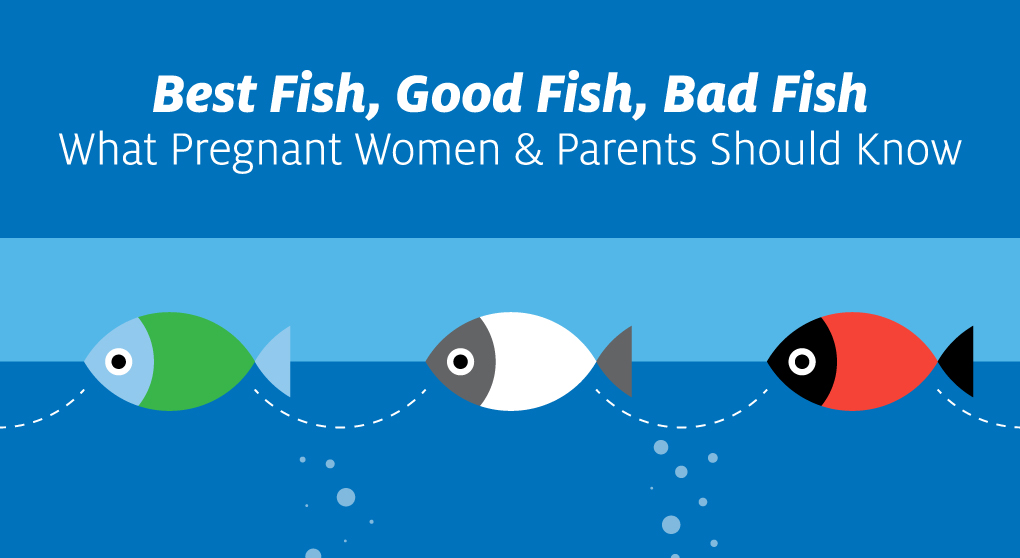Can you eat too much Salmon or Tilapia?
A healthy diet during pregnancy is important for the proper growth and development of your baby. As a specialist in Maternal-Fetal Medicine, I am often asked about eating fish during pregnancy.
- How much fish can I eat?
- Can I eat sushi?
- Are there “good” and “bad” fish to eat during pregnancy?
- Is fish good for my baby’s brain development?
- What about mercury? That’s bad, right?
Luckily, there are some clear guidelines about eating fish for pregnant women, infants and children, and people in all stages of life!
How does eating fish affect my baby’s health and brain development during pregnancy?
- Fish, including finfish and shellfish, is low in saturated fat, high in protein and healthy to eat during pregnancy. It is also the primary dietary source for two n-3 (also called omega-3) long-chain polyunsaturated fatty acids.
- For your baby’s optimal eye and brain development, moms need to include foods with omega-3 fatty acids in their diet.
- Omega-3 fatty acids are especially important for moms during the last trimester of pregnancy and while breastfeeding as this is when your baby’s brain is rapidly developing.
- Omega-3 fatty acids are also available as supplements and in fortified foods such as milk, yogurt, bread and even chocolate. You’ll just need to read the nutrition label to find out if the food includes omega-3 fatty acids. This can be an alternative source of omega-3 fatty acids for women who cannot or choose not to consume fish.
What about mercury?
- While mercury is present in all fish, the levels vary depending on the type of fish.
- One to three servings per week of a variety of seafood high in omega-3 fatty acids and low in mercury are recommended by the United States Food & Drug Administration and Environmental Protection Agency.
- Mercury, also called methylmercury, is toxic to your baby’s developing brain. For this reason, it is important to avoid eating fish high in mercury. It cannot be ‘cooked out’ of the fish, and over 95 percent of it is absorbed. You want to gain the benefits of omega-3 fatty acids that fish provide while limiting the negative side effects of mercury.
- Avoid eating fish high in mercury such as: king mackerel, marlin, orange roughy, shark, swordfish, tilefish (Gulf of Mexico), tuna and bigeye.
Can I eat fish caught at a lake, river or coastal area?
- Fishing is a popular pastime for many Nebraskans.
- Check for advisories about the safety of eating fish caught in areas where you plan to fish. This can usually be found on websites or through a Google search.
- If no advice is available, the United States Food & Drug Administration recommends limiting the amount of fish you eat caught in these areas to six ounces (one average meal) per week and not eating any other fish during that week.
What about sushi?
If you’re pregnant, you should only eat cooked fish. And if you love sushi, don’t worry! There are many sushi options that use cooked fish. You can usually find these options on the menu or you can ask your server.
Which fish are good for me, my baby and family?
To answer the question in this blog title, Salmon and Tilapia are in the Best Choice category, and two-three servings per week is recommended.
The following table sums it up nicely!

Follow this link for more advice regarding eating fish from the FDA.
What is a Maternal-Fetal Medicine doctor?

Benjamin Byers, DO
Maternal-Fetal Medicine Specialist
Dr. Byers is a Maternal-Fetal Medicine specialist with the Center for Maternal & Fetal Care, part of the Bryan Physician Network.
He has been in practice in Lincoln since 2014. Before this, he was a doctor in the US Army for 13 years, achieving the rank of lieutenant colonel. Although native to Iowa, he is an avid Cornhusker fan!









